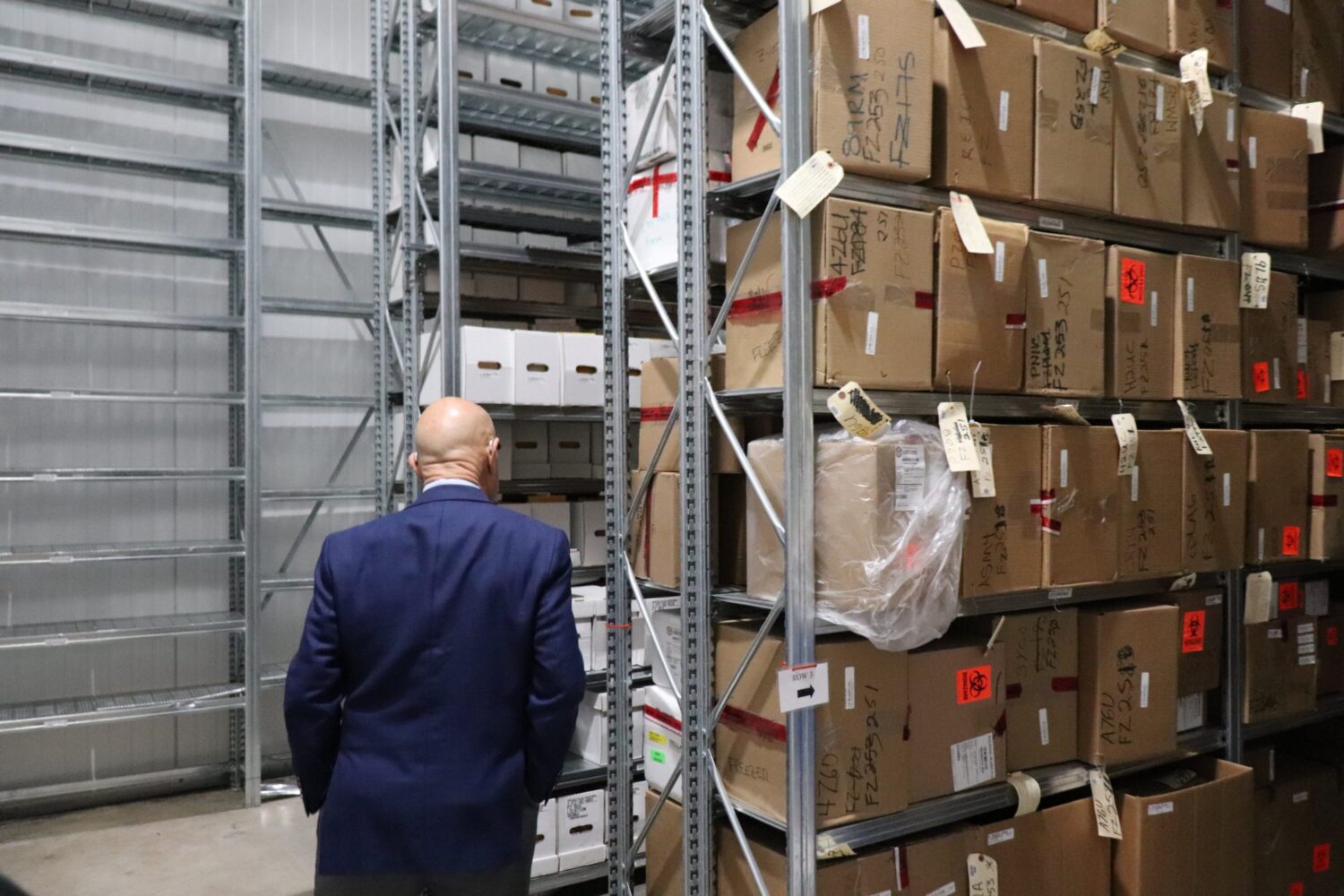The Growing Problem Of Drug-Addicted Rats In Houston

Table of Contents
Sources of Drug Exposure for Houston's Rat Population
The proliferation of drug-addicted rats in Houston stems from several interconnected sources of drug exposure. The easy accessibility of discarded drugs creates a dangerous environment for the city's rodent population.
- Illegal dumping of prescription drugs and paraphernalia: Illegal dumping sites often contain discarded medications, needles, and other drug-related materials, providing a readily available source of drugs for rats. This irresponsible behavior poses a direct threat to both animal and human health.
- Improper disposal of medications by residents: Many residents are unaware of the proper disposal methods for unused or expired medications. Flushing medications down the toilet or throwing them in the trash can lead to contamination of wastewater and landfills, ultimately reaching the environment and exposing rats to these substances.
- Open-air drug use and related litter: Open-air drug use, unfortunately, is a prevalent problem in some areas of Houston. The discarded drug paraphernalia and residue left behind contribute significantly to the exposure of rats to various drugs.
- Drug trafficking activities leaving behind drug residue: The remnants of drug manufacturing or trafficking activities can contaminate areas, inadvertently exposing rats to potent substances.
While precise statistics on drug disposal rates and illegal dumping specifically related to rat exposure are limited, the Houston Health Department acknowledges the correlation between improper waste disposal and increased rodent activity. For safe and responsible drug disposal, visit [link to Houston Health Department drug disposal resources].
Behavioral Changes in Drug-Addicted Rats
Exposure to drugs leads to observable behavioral changes in Houston's rat population, impacting their interactions within their ecosystem and with humans.
- Increased aggression and territoriality: Drug-exposed rats often exhibit heightened aggression, leading to increased conflict within rat colonies and potentially more frequent encounters with humans.
- Changes in feeding and sleeping patterns: Their natural rhythms are disrupted, leading to unpredictable activity patterns that may increase human-rat interactions.
- Impaired motor skills and coordination: The impact of drug exposure can manifest in decreased coordination and mobility, increasing their vulnerability to predators.
- Increased vulnerability to predators due to altered behavior: The behavioral changes induced by drug exposure can make rats easier targets for predators, potentially altering the balance of the local ecosystem.
While specific research on drug-addicted rats in Houston is still emerging, studies on the effects of various drugs on rodent behavior provide valuable insight. [Link to relevant scientific study 1] and [Link to relevant scientific study 2] offer further information on the behavioral consequences of drug exposure in rodents.
Public Health and Environmental Risks
The presence of drug-addicted rats in Houston presents significant public health and environmental risks:
- Potential for disease transmission through rat bites or feces: Rats are known vectors for various diseases. Drug-addicted rats, with their altered behavior, may pose an increased risk of disease transmission through bites or contaminated feces.
- Risk of accidental human exposure to discarded drugs: Accidental contact with discarded drugs, contaminated by rats, poses a risk of poisoning or addiction to humans, particularly children.
- Impact on the overall health of the local ecosystem: The presence of drug-addicted rats can disrupt the natural balance of the ecosystem, impacting other animal populations and the overall health of the environment.
Environmental concerns include:
- Contamination of soil and water sources: Discarded drugs and rat waste can contaminate the soil and water sources, potentially leading to long-term environmental damage.
- Disruption of the local food chain: Altered rat behavior can impact the local food chain, with cascading effects on other animal populations.
- Spread of drug-resistant strains of bacteria: The presence of drugs in the environment can contribute to the development and spread of drug-resistant bacteria. [Link to relevant data on rat-borne diseases in Houston].
Combating the Problem of Drug-Addicted Rats in Houston
Addressing the problem of drug-addicted rats in Houston requires a multi-pronged approach involving public education, improved waste management, and enhanced enforcement:
- Improved public education campaigns on proper drug disposal: Public awareness campaigns can educate residents on the risks associated with improper drug disposal and promote safe disposal practices.
- Increased enforcement of illegal dumping laws: Stricter enforcement of laws against illegal dumping is essential to deter irresponsible disposal of drugs and other hazardous materials.
- Expansion of safe drug disposal programs in the city: The city should expand its safe drug disposal programs to make it easier and more convenient for residents to dispose of unwanted medications.
- Collaboration between city officials, health organizations, and community groups: A collaborative effort is crucial to effectively address this complex problem, bringing together expertise from various sectors.
- Integrated pest management strategies focusing on rat control and prevention: Integrated pest management strategies focusing on both rat control and prevention are crucial to mitigate the risk of rat infestation.
Residents can take individual action by utilizing proper drug disposal methods, reporting illegal dumping activities, and supporting local initiatives focused on rodent control and drug abuse prevention.
Conclusion: Addressing the Growing Threat of Drug-Addicted Rats in Houston
The problem of drug-addicted rats in Houston is a serious and growing concern with significant public health and environmental implications. The readily available source of discarded drugs, coupled with the consequences of improper waste disposal, creates a breeding ground for this escalating issue. Addressing this problem requires a collective effort, including increased public awareness, stricter enforcement of existing laws, and improved access to safe drug disposal options. We must work together to protect our communities and environment. Take responsibility for proper drug disposal, report illegal dumping, and support local initiatives aimed at combating the problem of drug-addicted rats in Houston and improving our city's overall health and safety. For more information and resources, visit the [link to Houston Health Department] and [link to relevant city council website].

Featured Posts
-
 Eastern Manitoba Wildfires Ongoing Battle Against Deadly Flames
May 31, 2025
Eastern Manitoba Wildfires Ongoing Battle Against Deadly Flames
May 31, 2025 -
 Sanofi Et Dren Bio Accord Pour L Acquisition D Anticorps Bispecifiques
May 31, 2025
Sanofi Et Dren Bio Accord Pour L Acquisition D Anticorps Bispecifiques
May 31, 2025 -
 Foire Au Jambon Bayonne 2025 Le Maire S Interroge Sur Le Cout Exorbitant De L Organisation
May 31, 2025
Foire Au Jambon Bayonne 2025 Le Maire S Interroge Sur Le Cout Exorbitant De L Organisation
May 31, 2025 -
 Get Glastonbury 2025 Resale Tickets The Complete Guide
May 31, 2025
Get Glastonbury 2025 Resale Tickets The Complete Guide
May 31, 2025 -
 Spring Hotel Sale 30 Off Lavish Accommodations
May 31, 2025
Spring Hotel Sale 30 Off Lavish Accommodations
May 31, 2025
